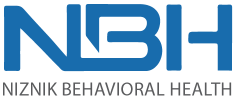Dual Diagnosis: Teens, Mental Illness, and Addiction
What is Dual Diagnosis?
Dual diagnosis is a term used to describe the co-occurring mental health and substance abuse disorders. This often stems from an attempt to alleviate anxiety, depression, tumultuous thoughts and emotions, or other debilitating symptoms through self-medication. People living with co-occurring disorders may or may not be aware of undiagnosed or misdiagnosed mental health conditions.
Because addiction is often a symptom of underlying psychological problems, comprehensive treatment programs designed to concurrently address the physical, mental, and emotional aspects of substance abuse are vital to success in long-term recovery. This is especially true in teens, as early intervention can greatly improve the prospects for their future.
Early signs of mental illness often begin during the teenage years due to physical changes within the brain during puberty. While moodiness and emotional outbursts may be typical symptoms of the teenage experience, they should still be taken seriously. Patterns of aggression, self-harm, or other negative behaviors can quickly become more dire if left unaddressed.
Common Symptoms of Mental Health Disorders in Teens
Just like addiction, mental health disorders take different forms and each person experiences them differently. However, common co-occurring mental health and substance abuse disorder symptoms you shouldn’t ignore are:
- Sudden, intense mood swings
- Behavioral changes including isolation and aggression
- Significant decline in school performance
- Neglect of hygiene and personal appearance
- Changes in eating or sleeping habits
- Trouble with authority
- New or worsening anxiety or depression
- Signs of intoxication or impairment
While these signs may commonly be brushed aside as typical teenage angst, disregarding them could have lasting consequences. Lack of proper coping mechanisms and healthy outlets may cause teens to rely on illicit substances and alcohol to relieve emotional distress or mental anguish. Becoming reliant on such means of alleviating symptoms of mental health issues can quickly lead to both physical psychological dependence, strengthening the seemingly inescapable cycle of addiction.
The Parent’s Role in Dual Diagnosis Treatment
Parental guidance and support throughout the addiction recovery process is vital to long-term success in overcoming substance abuse and managing symptoms of mental health disorders. If your teen is struggling with drug or alcohol abuse and you suspect underlying roots in mental illness, finding help and guidance for yourself and your child can help change the path of your future. Recovery services specific to the teenage experience provide valuable insight into recognizing the mental and emotional roots of substance abuse, allowing teens to develop and incorporate life management skills and coping mechanisms to replace harmful tendencies.
Do thorough research before admitting your teen into an addiction treatment program. The right fit should take your teen’s personal history and needs in mind, providing individualized support and one-on-one attention designed to help your teen grow into their full potential. Additional resources for support services for family members of people in recovery may also prove helpful in your own journey of healing. Programs using evidence-based modalities that incorporate family counseling and involvement help to foster a solid support system for your teen as they begin their journey of recovery.

